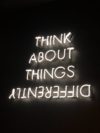 As you celebrate Black History Month at your school, we hope you’ll also take a moment to reflect on your school environment. This month’s resources will help you examine current practices and think differently about discipline and mindfulness.
As you celebrate Black History Month at your school, we hope you’ll also take a moment to reflect on your school environment. This month’s resources will help you examine current practices and think differently about discipline and mindfulness.
2022 Black History Month Educator Award Contest
- Governor Ron DeSantis’ and First Lady Casey DeSantis’ Black History Month Excellence in Education Award Contest is open to any full-time educator who works in an elementary, middle, or high school in Florida (including public, charter, private, home or virtual). Deadline to apply is Friday, 2/18, so nominate that exemplary educator today! Click here to nominate!
Take a Closer Look at Discipline Patterns
- Celebrate Black History Month by taking a close look at your discipline patterns. Have you examined your discipline referrals by race lately? Research by Skiba et al (2011) indicates that students from African American families are 2.19 (elementary) to 3.78 (middle) times as likely to be referred to the office for problem behavior as their White peers. In addition, the results indicate that students from African American and Latino families are more likely than their White peers to receive expulsion or out of school suspension as consequences for the same or similar problem behavior. Click here to learn more about the research.
- Check out the End Zero Tolerance Toolkit for resources on building a supportive school discipline system that does not rely on classroom removals, suspensions or expulsions.
The Mindful Reflection Protocol
- Zaretta Hammond, author of Culturally Responsive Teaching and the Brain, recommends a technique called the Mindful Reflection Protocol for teachers to reflect on their reactions to student misbehavior. “The Mindful Reflection Protocol is process that can help a teacher see their implicit bias in action. This protocol was developed teacher educators, Barbara J. Dray and Debora Basler Wisneski. The protocol is simple. It asks teachers to look at an incident through three lenses: description, interpretation, and evaluation. Teachers are asked to just describe what is going on literally with no judgment. Then, they are asked to focus on interpreting the action. What does it mean to you when the child does that? Still with no judgment. Once you’ve interpreted, then try to reflect on how you judge the action or behavior – what value to you give to your interpretation. I’d also ask teachers to notice how they interpret the same behavior from two students from different racial backgrounds. This process allows teachers to create some distance from thinking and actions that are sometimes on autopilot because things are happening so fast in the classroom.” Click Here to Learn More About Mindful Reflection.
Examine Your Classrooms
- Are you unconsciously contributing to the achievement gap through your class assignments? According to The Education Trust’s December 2021 report, “Black and Latino students are not assigned to experienced and qualified teachers due to decisions school leaders make about which courses students have access to and which teachers teach those courses. In other words, even in schools that look like they have a relatively experienced and qualified workforce, Black and Latino students may still be disproportionately assigned to courses taught by novice educators.” Take a look at your class assignments: are your non-white students more likely to be in classes taught by a first or second-year teacher? Click here to learn more.
Resource Corner:
- Looking for high quality learning resources? We know that high quality learning resources are always on your mind. We have listed several opportunities below that may benefit your school. Click here for more information and a list of upcoming webinars!
- Podcast alert! Listen to Ronda Dry talking to two school leaders about their switch to content-rich curriculum and the impact it has made on their student achievement.
To view more Educational Resources click here.
 As you celebrate Black History Month at your school, we hope you’ll also take a moment to reflect on your school environment. This month’s resources will help you examine current practices and think differently about discipline and mindfulness.
As you celebrate Black History Month at your school, we hope you’ll also take a moment to reflect on your school environment. This month’s resources will help you examine current practices and think differently about discipline and mindfulness.